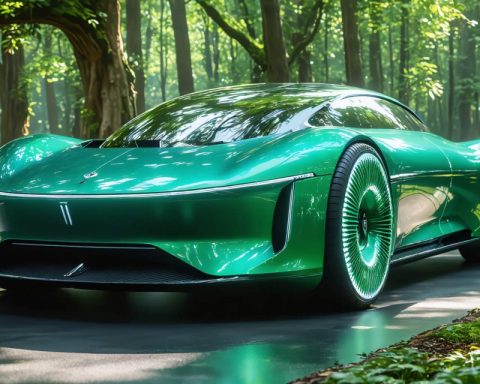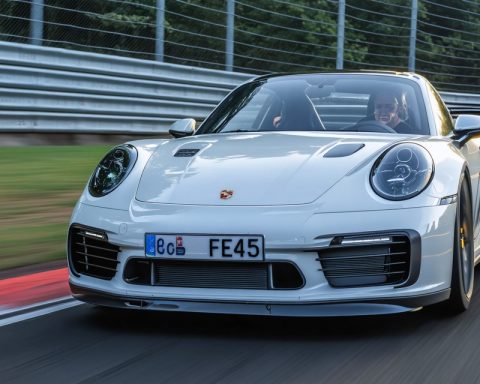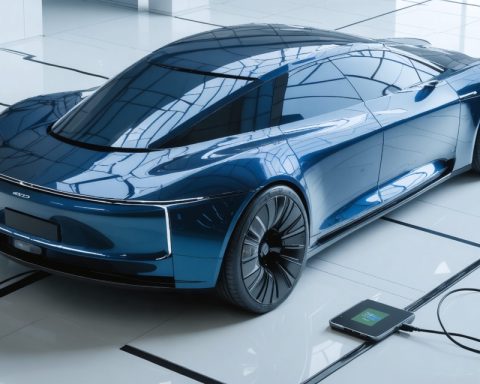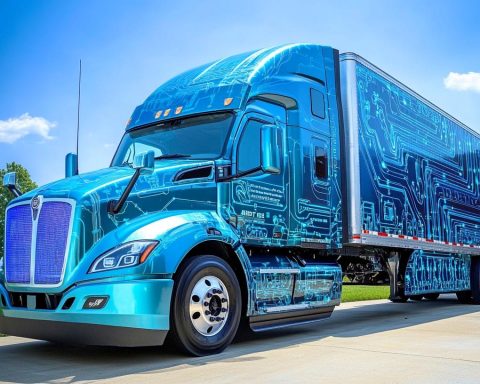- China’s entry into Azerbaijan’s EV market is dramatically transforming the automotive landscape with affordable, advanced technology.
- Government incentives, such as waived VAT on EV imports and reduced customs duties on batteries, are accelerating the adoption of electric vehicles.
- In 2024, Azerbaijan saw the arrival of 2,592 electric vehicles, 77% of which were Chinese-made.
- Chinese firms like BYD and Nio are leading this charge and investing in local manufacturing infrastructure, including electric bus production.
- There are concerns about dependency on China, with Azerbaijan seeking to foster local innovation and diversify partnerships with Europe and South Korea.
- Azerbaijan aims to develop its own EV technology and strengthen its position in the global market while managing potential risks of over-reliance on China.
Azerbaijan’s roads, once dominated by gasoline guzzlers, are being reborn in a quiet revolution, led by the hum of electric engines. The catalyst? China’s assertive entry into the electric vehicle (EV) market here, reshaping the landscape with strategic precision.
In a blossoming alliance, Azerbaijani streets are increasingly populated with sleek, Chinese-made electric cars that blend cutting-edge technology with affordability. The shift isn’t just about incorporating new vehicles; it’s a transformation fueled by forward-thinking government incentives. The state waived value-added taxes on EV imports from 2019 and dropped customs duties on batteries and charging equipment from 2022, accelerating the adoption of this cleaner technology. The numbers tell the story: in 2024 alone, 2,592 electric vehicles arrived in Azerbaijan, and a formidable 77% of these bore the Chinese hallmark.
Tapping into Azerbaijan’s aspiration to reduce carbon emissions and bolster renewable energy, Chinese automotive giants such as BYD and Nio are spearheading this transformation. Their strategy extends beyond the immediate—BYD is crafting a sturdy base for manufacturing electric buses locally with a considerable investment, creating job opportunities and nurturing a nascent industry.
Yet, with opportunity comes challenge. Azerbaijan is positioning itself as a critical node in China’s wider strategy to dominate the regional EV markets. While Beijing’s commitment offers economic perks and an entrance to cutting-edge technology, there’s an undercurrent of unease over potential dependencies. There’s a tangible risk that Azerbaijan may become an assembly ground rather than a hub of innovation and high-value production.
To balance this equation, Azerbaijan harbors ambitions to develop its own technological prowess and diversify its partnerships. By encouraging technology transfers and bolstering domestic research and development, the nation aims to build resilience in its EV sector. Engaging with diverse global players—Europe, South Korea—could mitigate dependency risks and encourage a more robust EV ecosystem at home.
China’s foray into Azerbaijan’s EV sector is a tale of opportunity interwoven with caution—a microcosm of the nation’s broader economic aspirations and the perils that accompany reliance on a single partner. In pursuing this electrified path, Azerbaijan is not just renewing its vehicular landscape; it’s crafting a vision for its future, one where the hum of progress allies with the steady beat of sustainability.
A New Era for Azerbaijan: The Electric Vehicle Surge
Azerbaijan’s Electric Vehicle Transition: Key Insights
Azerbaijan is undergoing a significant transformation in its transportation sector, driven largely by the influx of Chinese-made electric vehicles (EVs). Here’s a closer look at the factors and implications surrounding this shift.
Government Incentives Driving EV Adoption
The Azerbaijani government’s strategic initiatives have played a pivotal role in facilitating the rise of EVs. Since 2019, the waiver of value-added taxes on EV imports and the removal of customs duties on batteries and charging equipment in 2022 have made electric vehicles more accessible and affordable. These incentives align with Azerbaijan’s broader environmental goals to reduce carbon emissions and enhance renewable energy usage.
Chinese Influence and Local Impact
Chinese automotive giants, such as BYD and Nio, are not only exporting vehicles but are also investing in Azerbaijan’s burgeoning EV market. BYD, for instance, is laying the groundwork for manufacturing electric buses locally. This move is likely to boost employment and spearhead a new manufacturing sector within the country, aligning with Azerbaijan’s aim to expand its industrial capabilities.
Challenges and Dependencies
While China’s involvement brings cutting-edge technology and economic benefits, it also introduces potential dependency risks. Azerbaijan needs to ensure that its role goes beyond mere assembly lines to become a center for innovation. Developing domestic research capabilities and nurturing partnerships with diverse global EV markets, such as in Europe and South Korea, is crucial to minimizing risk and building a sustainable industry.
How-to Steps & Life Hacks for New EV Owners in Azerbaijan
1. Explore Government Incentives: Check for available financial incentives or tax breaks when purchasing an EV.
2. Optimize Charging Habits: Invest in efficient home charging stations or utilize public charging infrastructure to save on energy costs.
3. Stay Informed: Follow local government announcements for new incentives or changes in policy related to EVs.
Market Forecasts & Industry Trends
Azerbaijan’s EV market is poised for significant growth. With over 2,592 EVs imported in 2024 alone, the country is on track to substantially increase its EV footprint. According to industry experts, the EV penetration rate in Azerbaijan is expected to continuously rise, supported by favorable policies and increased consumer awareness of environmental impacts.
Pros & Cons Overview
Pros:
– Environmental Benefits: Reduction in carbon emissions and improved air quality.
– Cost Savings: Lower fuel costs compared to gasoline vehicles due to tax breaks and incentives.
– Economic Growth: Local manufacturing initiatives creating jobs and encouraging investment.
Cons:
– Dependency Risks: Over-reliance on Chinese imports and technology.
– Infrastructure Challenges: Need for expanded charging infrastructure to support growing EV numbers.
Actionable Recommendations for Azerbaijan’s EV Market
– Diversify Partnerships: Encourage collaboration with a range of international automotive companies to diversify technology sources and reduce dependency risks.
– Enhance R&D: Invest in local research and development for homegrown EV technologies and innovations.
– Expand Charging Infrastructure: Develop a comprehensive network of charging stations across the country to support EV adoption.
For more information about global electric vehicle trends, visit International Energy Agency and OECD.
In conclusion, while Azerbaijan’s move towards an electric future heralds progress and potential, it must strategically navigate the balance between foreign influence and indigenous growth. Embracing this vibrant change will require thoughtful policies, strategic partnerships, and a commitment to sustainable development.















